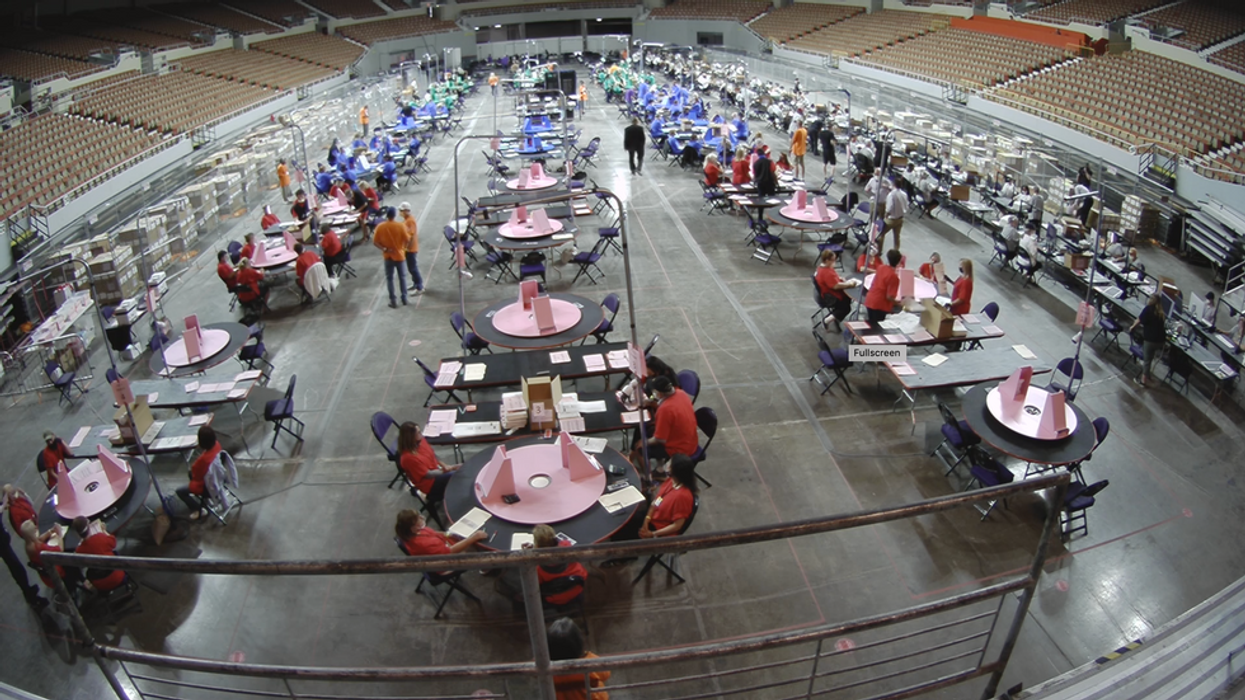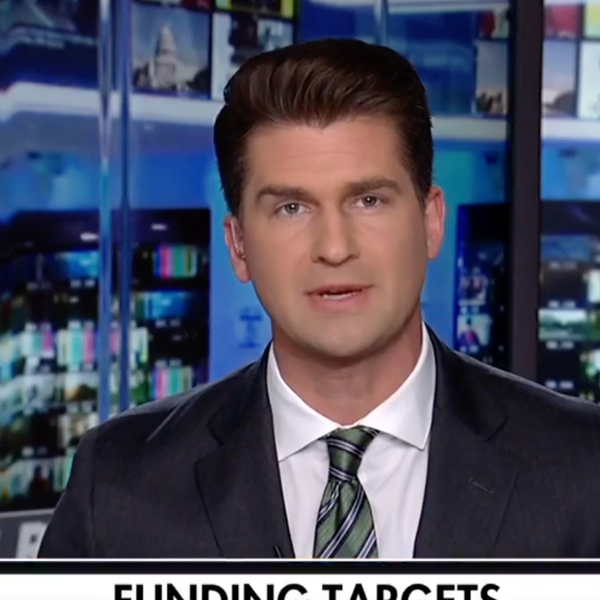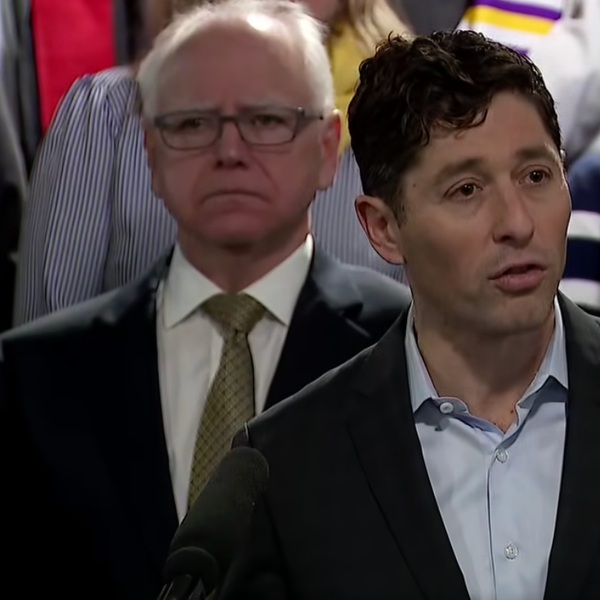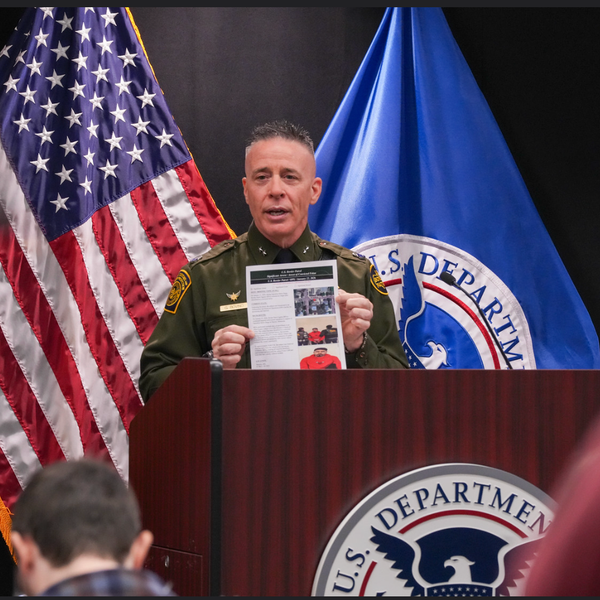
'Audit' under way in Maricopa County, Arizona.
This article was produced by Voting Booth, a project of the Independent Media Institute.
The "big lie" that President Joe Biden was not legitimately elected is not going away. One reason is Americans who care about their democracy are not learning how votes for president in 2020 were counted and verified — neither from the big lie's promoters nor from most of its fact-driven critics.
Most visibly, the absence of a clear and accurate explanation can be found among former President Donald Trump's ardent supporters. As seen in a July 15 briefing in Arizona's legislature, the contractors hired by the state Senate to assess the 2020 election's results unleashed a new thicket of finger-pointing and innuendo that fans doubts about Maricopa County's election administration and votes for Biden.
Critics of the big lie, who range from state officials (including Republicans) to voting rights advocates — and, of course, Democrats— have mostly emphasized that the Arizona Senate's inquiry and copycat efforts in other states are bad faith exercises led by Trump supporters who lack election auditing experience.
These competing narratives lack clear explanations of what matters when counting and verifying votes, and, by extension, what does not matter and is a sideshow. With few exceptions, easily understood explanations of how 2020's votes are counted and verified have been missing in the election's volatile aftermath.
Most of the arguments used by those trying to dispel 2020 election myths focus on labeling the big lie a propaganda narrative, or sweepingly dismissing Arizona's audit as a partisan-led hoax. But these don't seem to be nearly as effective as a different approach—one that focuses on demystifying the wonky details of the voting and vote-counting processes.
Two examples of the latter, more rigorous and successful approach stand out: the post-Election Day daily briefings by the Georgia Secretary of State office's Gabriel Sterling, which were widely covered by the media and attested to Biden's victory in that state and the victory by Democrats in its U.S. Senate runoffs; and ongoing efforts by a self-funded team of experienced election auditors in Arizona, which have attracted some coverage by using hard evidence from public data sources.
The team of experienced auditors includes a longtime Arizona Republican Party election observer; the retired CEO of Clear Ballot, a federally certified auditing firm; and the retired chief technology officer of Clear Ballot. They have drawn on Maricopa County's official 2020 election records to provide a baseline to assess the accuracy of its presidential election. Their nuts-and-bolts approach has been missing from almost every other report criticizing the state Senate's inquest.
Among their early findings were tens of thousands of ballots where most of the votes were cast for Republicans, but not for Trump — and many were cast for Biden, which provided a factual explanation for Trump's loss. More recently, the auditors' documentation of 2020 ballot inventories and vote count subtotals has pushed the Senate's contractors to start a new recount of Maricopa County's 2020 ballots.
Sources with access to the contractors' operations have told Voting Booth that the contractors now know that their hand count of 2.1 million ballots was initially sloppy, and cannot account for thousands of ballots in the official results. (Hence, a new count.) But what the contractors are doing in private, behind locked doors in a Phoenix warehouse, is the opposite of what they have been saying in public, which is pedaling vote-theft conspiracies.
Because the public's picture of the Senate's inquiry has a notable absence of clear descriptions articulating the building blocks of counting votes, there is a void that keeps being filled with misinformation, as exemplified by the contractors' July 15 briefing for Senate Republicans in Arizona's capitol.
Their statements, not given under oath, exemplified this charade. The contractors repeatedly spoke with indignation and bluster about technicalities in the corners of Maricopa County's election infrastructure, suggesting that the county's handling of the presidential election was deeply amiss. Not only were these technicalities hard for almost everyone, including the senators, to follow, but their presentation and tone supported conspiracy theories (which dominated pro-Trump media). In reality, the issues raised have little to do with validating voters, ballots and votes.
The contractors said, for example, that Maricopa County's central tabulators could have been hacked because key passwords and antivirus software had not been updated. They implied that officials had covered up their Election Day actions because activity logs on the tabulators were erased in March 2021. The lead contractor, Cyber Ninjas' Doug Logan, said there were several categories of suspicious ballots, all involving volumes of votes that exceeded Biden's statewide margin.
It is no surprise that fervent Trump supporters are invested in perpetuating doubts about his loss while their investigators fan diversions that hide their incompetence. Mostly, the Arizona Senate's contractors have discovered Maricopa County could have done better with managing some aspects of conducting the 2020 election. It is not headline news that election administration is complex, that officials do make mistakes, and — crucially — that the process usually catches and corrects them.
But what is going on here is far more cynical and intentionally dishonest.
In April, the Senate's contractors were told what was needed to conduct a credible audit, but they rejected that accounting-style approach. They were urged to compare the starting and finish lines of the vote-counting process to see if the figures matched. That involves three sets of records: the hand-marked votes for president on 2.1 million ballots; the digital images of every ballot immediately created by the scanners to start the electronic counting process; and the official results spreadsheet that lists every vote cast on every ballot. If the starting and finish line votes and totals matched, the election's outcome is legitimate.
Instead, the Arizona Senate's agents raced ahead with a hand count that did not even try to compare its step-by-step results with the building blocks of the official results. Now, inside observers have told Voting Booth that the Senate's contractors are backtracking in private to make more specific comparisons. (They also are trying to figure out if the hand count missed thousands of votes, which is why they are recounting the number of ballots but not the presidential votes.) But, publicly, the Senate contractors are not telling anyone what is going on. Instead, they are suggesting with bluster that they are hot on the election theft evidence trail.
The Senate Republican leaders are either falling for this masquerade or helping to perpetuate it. Not once during the July 15 hearing did senators ask their contractors why the Senate had to spend additional thousands to rent machinery to reconfirm the volume of ballots. The contractors urged the Senate to subpoena more data from the county, including voter signatures, in that briefing.
A new subpoena could lengthen the Senate's inquest, and, if some records are not released, it would provide a pretext for the contractors to claim that they cannot conclude their inquiry because evidence was withheld. Arizona Senate Judiciary Committee Chairman Warren Petersen telegraphed this scenario in his closing remarks, saying, "it [the inquiry] will be incomplete if we don't have those items."
The session ended with Arizona state Senate President Karen Fann reciting her oft-stated disclaimer that the inquiry was not about overturning her state's 2020 presidential results, but merely addressing the doubts of Republican voters. "At no time have we ever implied or inferred that there is any intentional misdoings here in any way whatsoever, and, in fact, we certainly hope not," she said. "But we do need to have this information and answer these questions."
After the briefing, Trump issued three statements falsely claiming election fraud. And several days later, another Arizona Senate subcontractor, Jovan Pulitzer, who has led its inquiry into forged ballots, said the same thing without evidence—that election fraud had deprived Trump of Arizona's 2020 Electoral College votes.
"Finally, you get to see the truth that there is such a thing as election fraud," he told Arizona pro-Trump activist Liz Harris on her July 19 podcast. Pulitzer was interviewed while on a private jet en route to Arizona to meet other funders and organizers (those featured in the new pro-Trump film, The Deep Rig). Pulitzer praised the patriotism of the donors who have funded the inquiry and the 1,500 volunteers who "made this happen," saying, "The Arizona Senate only paid $150,000 for what ends up being a $9 million audit."
But inside the Phoenix warehouse where the Senate contractors are continuing their work, people know that the documentation and methodology provided by the independent outside auditors have not only unmasked their hand count's flaws; they also keep pointing toward the conclusion that Biden won Arizona's presidential election, and that Maricopa County's administration of that election, while not perfect, was not fraudulent.
There are Arizona Republicans who know what is going on inside the Senate's investigation, but whether they are willing to stand up to Trump's supporters is another question. That task would be easier if the public knew more about the building blocks of counting votes.
- Arizona GOP Won't Quit Recounting 2020 Ballots Until Trump 'Wins ... ›
- Arizona 'Fraudit' Challenged By Experienced Election Auditors ... ›
- VIDEO: Maricopa Republicans Urge Shutdown Of Arizona 'Audit ... ›
- Stop Calling The Arizona Recount Charade An 'Audit' - National Memo ›
- Arizona 'Audit' Bolsters 2020 Lies -- And GOP's Growing Insurrection ... ›
- Tensions Flare Among Arizona Republicans Over Discredited ... ›
- Arizona GOP Hires Conspiracy Theorist To Conduct Third 2020 ... ›
- Arizona Audit's Major Procedural Flaws Will Create Conflict With ... ›
- GOP Wants To Expand Arizona 'Audit,' But DOJ May Shut It Down ... ›
- Texas Republican Urges Election Audit — In Counties Biden Won ... ›
- Outfit Running Arizona 'Election Audit' Insists On Secrecy, Rejects ... ›
- Maricopa Republicans Defy State Senate’s Latest Audit Demands - National Memo ›
- New Report Provides Further Proof That Arizona Audit Is ‘A Hoax’ ›
- Maricopa GOP Official Scorches Party’s ‘Disgusting’ Role In Arizona Audit ›
- Arizona’s Fake Audit Is Spreading Like Cancer ›
- Arizona 'Audit' Report Likely To Concede That Biden Won In 2020 - National Memo ›
- Taxpayers Lose Millions On Voting Machines Ruined By Arizona ‘Audit’ - National Memo ›
- Trump Abruptly Deletes Message Praising Arizona ‘Audit’ — Which Shows Biden Won - National Memo ›
- Trumpists Demand Arizona Governor 'Decertify' Biden Victory Despite Audit Result - National Memo ›
- Trumpist Diehards Still Question Biden’s Victory in House Oversight Hearing - National Memo ›
- Is Virginia Prepared To Debunk 'Voter Fraud' Lies In Governor's Race? - National Memo ›
- No truth to the claim that Arizona audit found Trump up by ... - PolitiFact ›
- Arizona Senate President Karen Fann to Constituent: 'Biden Won ... ›
- Fact Check-Results of disputed Maricopa County, Arizona vote audit ... ›
- The other Arizona election audit ›
- AP FACT CHECK: Trump makes false claims about Arizona audit ›
- Fact check: False claim Arizona audit found evidence of election fraud ›
- Arizona ballot audit shows signs of backfiring on GOP - POLITICO ›
- Most Arizona Republicans say election audit will show Trump won ... ›
- Audit or Fraudit? Trump supporters bank on Arizona - BBC News ›








